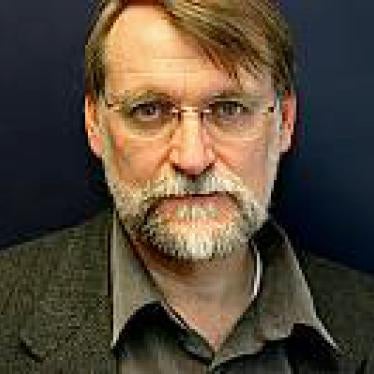To commemorate World Refugee Day, Think Africa Press asked a panel of experts: "What remains the biggest gap in the international protection of refugees?"
Bill Frelick, Refugee Policy Director, Human Rights Watch
The biggest gap in international refugee protection concerns what are called “mixed flows” – situations in which refugees and economic migrants are mixed together. In many cases, people are forcibly displaced through a combination of political repression, ethnic conflict, environmental disaster, poverty and famine. Citing the narrow “well-founded fear of being persecuted” in international refugee definition, governments commonly use the very existence of any economic motive to disqualify even the most obviously meritorious claims for asylum. They are even more likely to reject claims if the numbers of refugee claimants are large and the capacity to accommodate is limited.
Today, World Refugee Day, sectarian violence rages in Arakan state, Bangladesh. Coast and border guards push back desperate Rohingya as they clamour for safety, and their foreign minister announces, “We are not bound to provide shelter to the Rohingyas”. Rohingyas aren’t the only poor asylum seekers to have their motives questioned. As South Africa resumes deporting Zimbabweans, we again hear the rhetoric of “illegal people” and “border jumpers”. Doubts persist that South Africa, the country with the largest asylum seekers caseload, will have the capacity and the willingness to assess the complex web of reasons causing Zimbabweans to leave their country before sending them back.
Even in the face of what is perhaps the most well-known spiraling of political violence in the world, Syria, the Jordanian government announced on the eve of World Refugee Day that it would toughen its asylum screening procedures for Syrians, and began turning dozens away, questioning whether they had legitimate refugee claims. The Interior Ministry said that an estimated 125,000 Syrians had come to Jordan since the outbreak of protests, and Associated Press cited a Jordanian official as saying that Jordan was “concerned over a larger influx of individuals seeking to take advantage of its open border policy”. Until now, Jordan had welcomed Syrian refugees. But now, as the numbers grow (adding to the hundreds of thousands of Palestinian and Iraqi refugees already in the country) and it feels further strain on its economy, Jordan seems to be having second thoughts.
In neighbouring Israel, the growing number of asylum seekers has already created a backlash. Prime Minister Benjamin Netanyahu claimed that almost none of the 60,000 Africans – 88% of them from Eritrea and Sudan – who crossed Israel’s Sinai border since 2005 are refugees. “We checked how many of them are refugees – and we found that less than one in a thousand is defined as a refugee,” he said. It depends, of course, on who is doing the defining and who is making the decision. Israel does not allow Eritreans and Sudanese to lodge asylum claims, so Netanyahu is being disingenuous in saying virtually none qualify as refugees. But even for those other nationals whose claims are considered, nationals from 'enemy' states are excluded from receiving asylum and the Ministry of Interior is authorised to reject applications without appeal even at the registration stage, according to a May 2012 US State Department report.
Even in the European Union, where all member states on paper follow the same refugee definition and procedures, the asylum approval rate for the largest nationality group of asylum seekers, Afghans, varied last year from 4% in economically-strapped Greece to 33% in better-off Austria. Looking around the globe on World Refugee Day, there is hardly a place where refugees are welcome. But for refugees fleeing persecution and violence who also happen to be poor, it is almost impossible to overcome the presumption that they are economic migrants. Until governments acknowledge that also having economic reasons to flee does not nullify refugee claims, asylum will be available for the most part only to the relative few whose countries of origin are on the same economic plane as the country of refuge. And until there is equitable burden-sharing among states, they are all likely to seek to shift and divert responsibility. In the end, it is the poorest refugees who will suffer as the right to asylum erodes.









